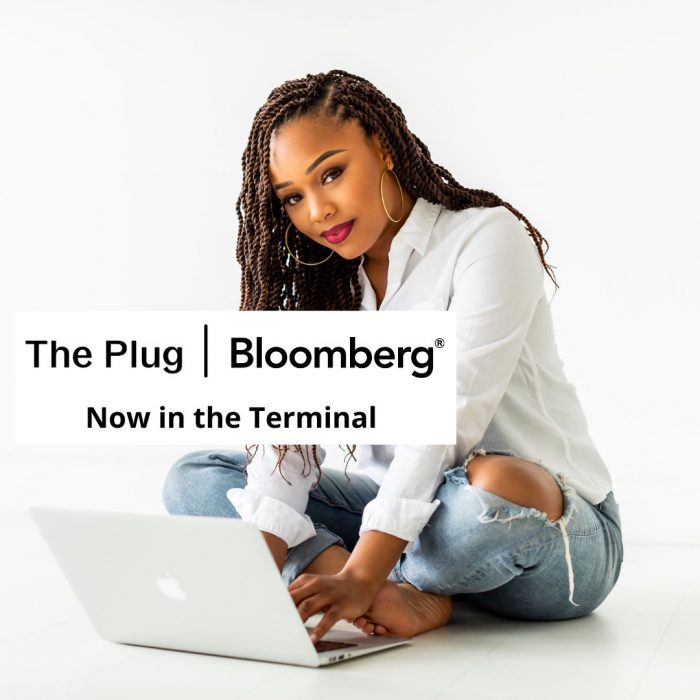
In 2019, data journalist Sherrell Dorsey wrote a story for the Columbia Journalism Review about how Black and brown tech entrepreneurs were not being covered by the American tech and business press in a meaningful way.
Dorsey wrote:
Newsrooms seemed to perk their ears when tech companies such as Yahoo, Google, and Facebook began releasing employee diversity numbers in 2014. But the critical coverage of missing minority representation in tech had a shade of hypocrisy to it; most American newsrooms were not much more diverse. Stories about Black founders of emergent tech companies often hewed to a narrative of Black poverty or rags-to-riches.
Now, despite promises to “do better” and some progress in the wake of the Black Lives Matters protests in the summer of 2020, Dorsey thinks there’s still a long way to go.
But instead of trying to get stories placed in mainstream publications, she decided to start her own.
Meet The Plug, a news outlet and research company focused on covering the ways that “Black people are affected by and engaged with the innovation economy.”
Dorsey launched The Plug in 2016 as a daily, curated newsletter that shared stories about Black startups. By 2018, just after Dorsey graduated from Columbia’s computational journalism program, she delved into original reporting.
“The conversations that I was seeing five or six years ago were either these magical minority stories or they were profile pieces, but you would never see a ton of rigorous reporting in the way in which you would see Microsoft, Tesla, and Facebook covered in detail,” Dorsey said. “Journalism related to Black and brown founders has always been intellectually lazy when we’re talking about coverage within business and tech news. [With The Plug, I] really wanted to step in and to say we still deserve great, strong, intellectually challenging, targeted, rigorous, and data-driven reporting.”
The Plug is funded through grants, brand partnerships, advertising, payments for its original research, and subscriptions. Non-paying readers can get the daily newsletter and certain stories for free. Subscribers to The Plug PRO get access to weekly reports, The Plug’s data library, access to a private community and member events, and discounts to its live summit, for $300 a year.
The Plug partnered with Vice’s Motherboard in 2018 and then did a brand partnership with Capital One, Dorsey said, which brought in some initial revenue. In 2019, it joined The Information’s Accelerator program and launched its subscription product after that. In April, The Plug became the first Black business publication to be syndicated by the Bloomberg Terminal.
Growth has been slow and sort of piecemeal, she said, because “venture capital typically does not back [Black] media, unless, of course, you’re Carlos Watson.”
“It makes us better and scrappier because we can build without the sugar addiction of money being thrown at us,” Dorsey said. “But it also means a lot of sacrifices.”
We got here because we noticed a missing link in the way Black innovators were being covered in media. Now, we lead the way on data-driven reporting and visibility. When you become a @tpinsights PRO member, you change the future.https://t.co/VC5lZj8FKH pic.twitter.com/38uCdsETjG
— Pronounced Sher – Elle (@Sherrell_Dorsey) October 27, 2021
Over the last year, Dorsey’s team of six (one managing editor, two reporters, two writers, and a part-time community engagement manager) has worked on producing stories related to how tech policies impact Black and brown communities and companies, and innovation and research at the 107 HBCUs in the United States. The Plug sends out a weekly HBCU newsletter that’s anchored by HBCU innovation reporter Mirtha Donastorg, who came to The Plug through Report for America.
“We just try to find the questions people aren’t asking and what we are curious about where can we collect data,” Dorsey said. “How do we turn that data into some deeply engaging storylines and content and make people smarter? Versus just using these as opportunities to continue to tell Black and brown people that they’re less than.”
Dorsey decided to launch a research wing of The Plug because as a graduate student trying to report on Black entrepreneurship, she saw few dollars going into going into research on Black startups. She developed a dataset and heatmap of all the Black-owned co-working spaces in the U.S. When companies and executives started reaching out to her asking for the data, she knew there was a bigger opportunity there.
“If I build a Black Bloomberg, I can create a sustainable business model,” Dorsey said. “The research that we need doesn’t even exist, so we have to build it.”
Break the rules.
Make your own.I’ve been bursting at the seams waiting to announce our syndication in Bloomberg.
I set out to create the Bloomberg of Black tech news & insights…now we bring them the news & insights.
pic.twitter.com/inxDdtZ6nB
— Pronounced Sher – Elle (@Sherrell_Dorsey) April 12, 2021
Though Dorsey declined to share subscriber and audience statistics, she said that readers of The Plug are engaging with a range of its offerings, from its daily emails to its member calls.
“There’s a level of intimacy that we’ve built in to our community that has, I think, helped to garner both trust and respect,” she said. “I get messages every day from folks who tell me that what we’re building is great and they want to support and help … It’s a sense of, ‘Wow, we’ve been waiting for someone to cover us like this for a very long time.'”